Dr. med. Miriam Fichtner

IVIG influence on pathogenic B cells in myasthenia gravis
Autoimmunity is a malfunction of the immune system wherein an immune response develops against one's own tissues. Myasthenia gravis (MG) is an autoimmune disease in which the immune system causes impairment of neuromuscular function by producing autoantibodies that interrupt signaling from nerves to muscles. While the human immune system is comprised of trillions of circulating cells, only a tiny fraction directly contributes to autoimmune disease. In MG, those that contribute are a subset of autoantibody-producing B cells.
Intravenous immunoglobulin (IVIG) is a commonly used immunotherapy for MG patients experiencing disease exacerbation. However, the mechanism by which IVIG affects improvement is not understood. Thus, defining how clinical outcomes associate with immunologic changes due to IVIG will give further insight into patient-tailored use of this therapy.
We have developed two novel and innovative assays to study the immunology of MG which will be used to investigate the effect of IVIG in MG. Both assays leverage technology that makes it possible to study only the tiny fraction of disease-associated cells. The first assay measures the functionality of autoantibodies, and the second assay measures the frequency of autoantibody-producing B cell subsets. We propose that MG patients responding to IVIG will show, (i) clear changes in autoantibody concentrations and diminished autoantibody functionality, and (ii) reduced frequency of the specific autoantibody producing B cells subsets.
We anticipate that this work will teach us how the clinical benefit observed with IVIG usage occurs immunologically. Moreover, by defining how IVIG interrupts MG autoimmunity, we will identify clinically useful parameters (biomarkers) that will guide treatment decisions and directly impact patient care.
Curriculum Vitae
Miriam Fichtner graduated in 2009 as class valedictorian from her small school (Deutschherren-Gymnasium) in Aichach, Bavaria, Germany. In early 2018 she finished her medical studies at Ludwig Maximilian University (LMU) in Munich.
Miriam developed a keen interest in immunology and neurology while studying medicine. Thus, during her medical studies Miriam spent three years (2015–2018) on her doctoral thesis in Professor Edgar Meinl's group at the Institute of Neuroimmunology at LMU. Her thesis focused on B cells in multiple sclerosis; she studied a newly found endogenous soluble receptor (sTACI) which contributes to the survival system of B cells. In 2016 Miriam won first prize in the abstract contest of one of the largest medical thesis conferences in Germany (Doktamed) held at LMU. Also in 2016, Miriam was chosen to give a talk at the PhD-candidate-targeted Conference Interact in Munich as one of the few participating medical students. In early 2018, Miriam was selected to hold a webinar describing a new method that she helped establish in collaboration with the lab of Professor Dr. Michaela Smolle in the biochemical field. (Webinar title: Investigating Protein Oligomerization and MW Using SLS/SEC.)
Miriam knew early on that she wanted to further her knowledge in the field of neuroimmunology and autoimmunity. Accordingly, she joined Dr. Kevin C. O'Connor's lab at Yale University for her postdoctoral training. Her studies focus on investigating the role of autoantibodies and B cells in immunopathology. Her emphasis as a clinician-scientist is translational as she is particularly interested in advancing our understanding of B cell-mediated autoimmunity in the context of multiple sclerosis (MS), myositis, neuromyelitis optica (NMO), and myasthenia gravis (MG).

